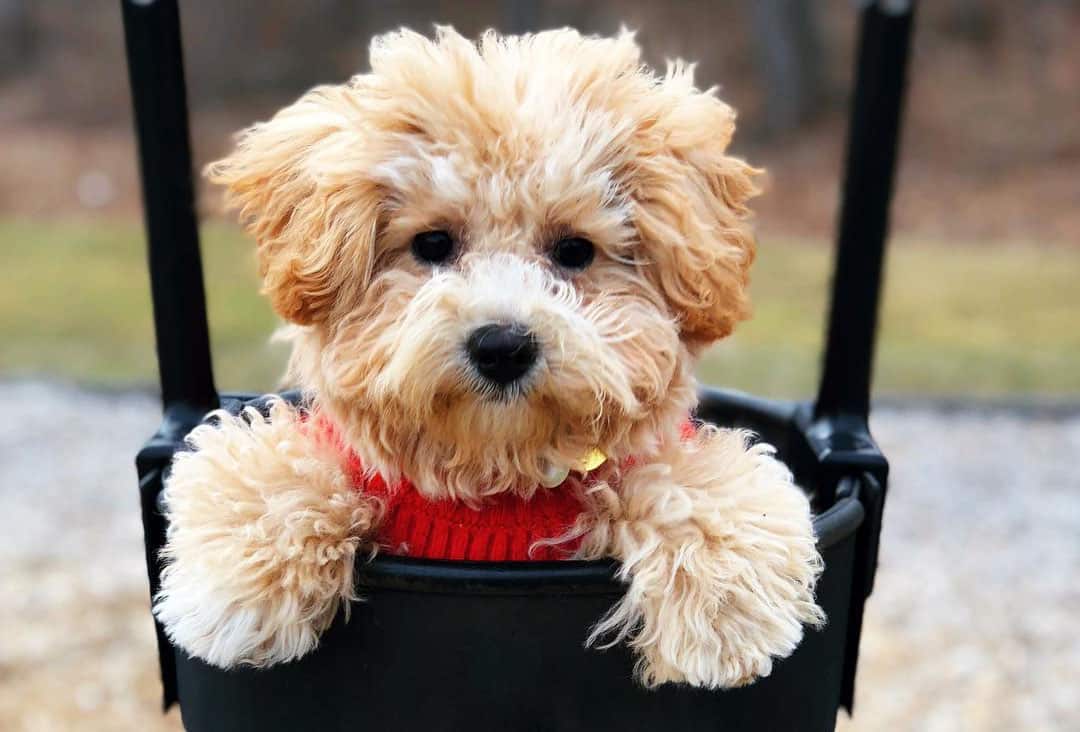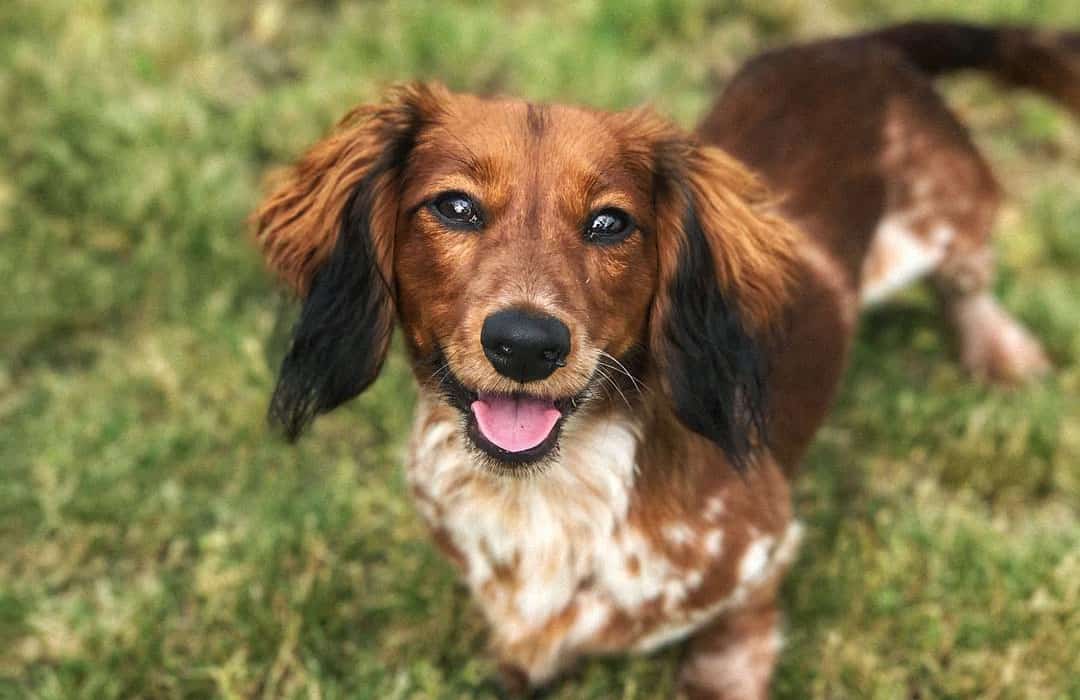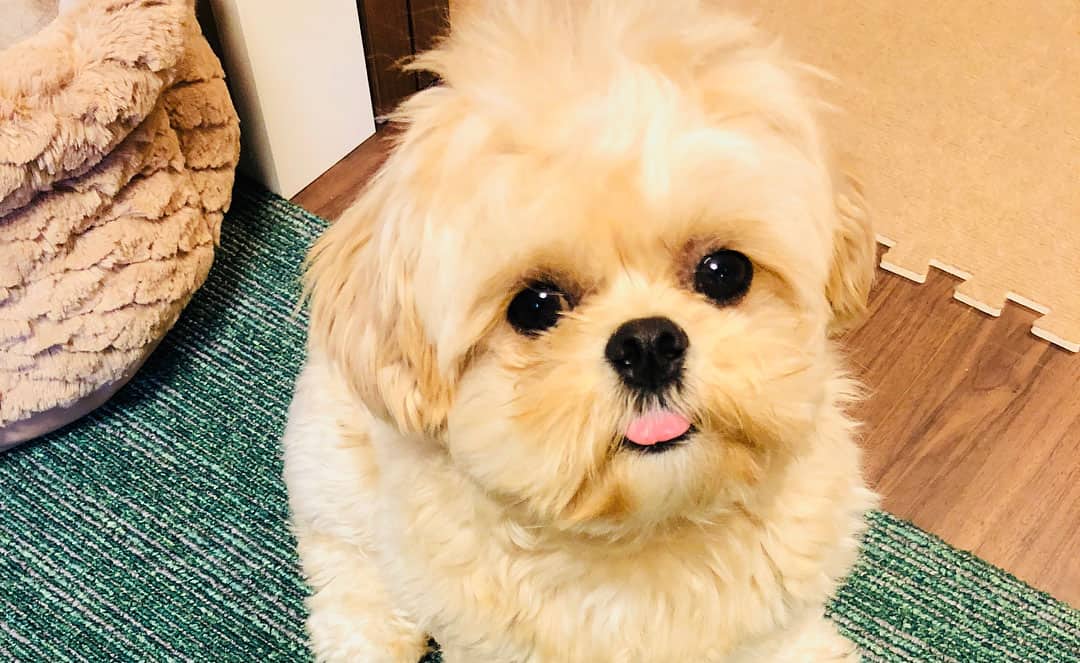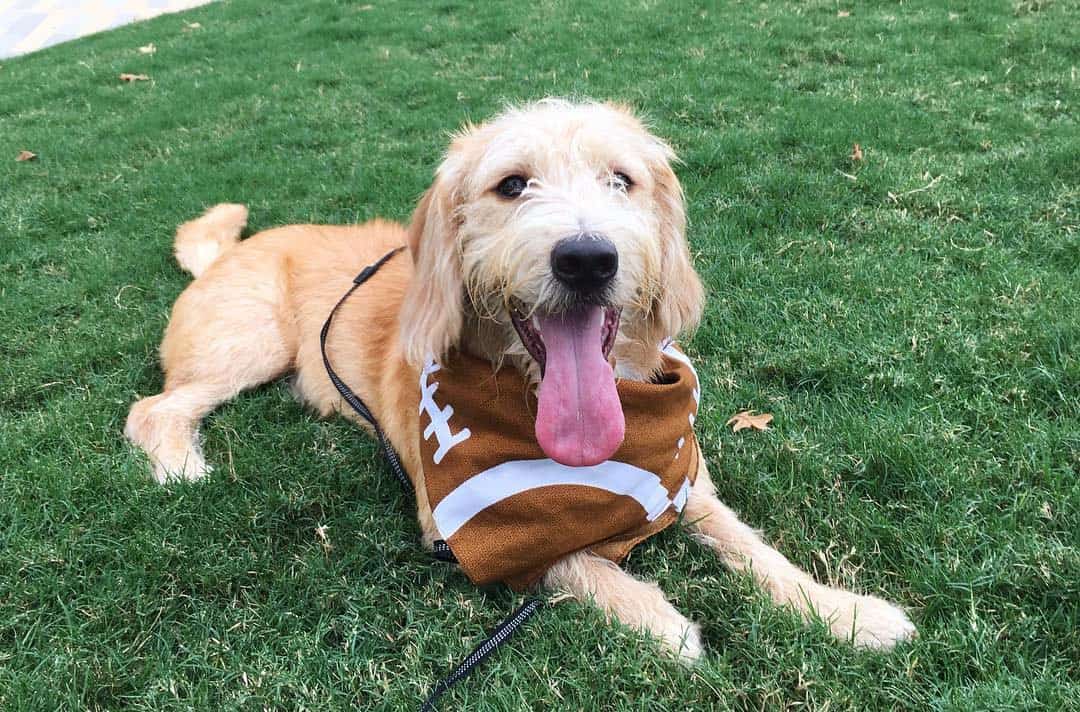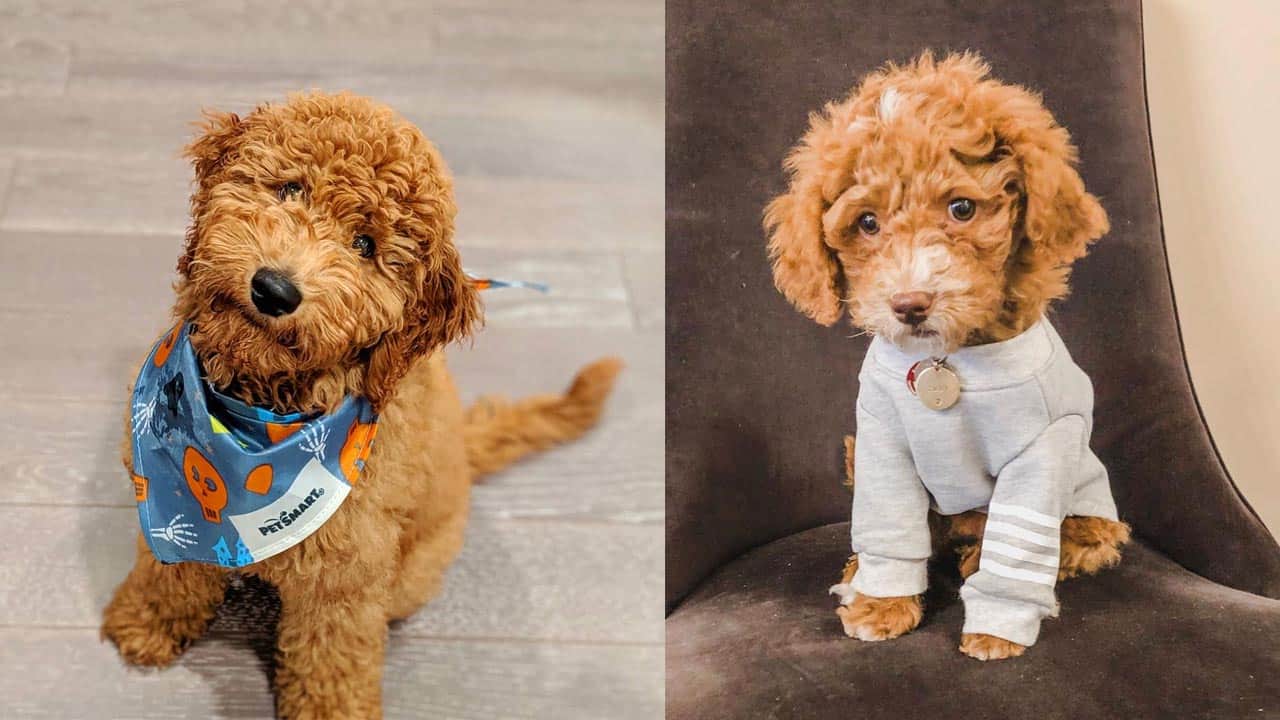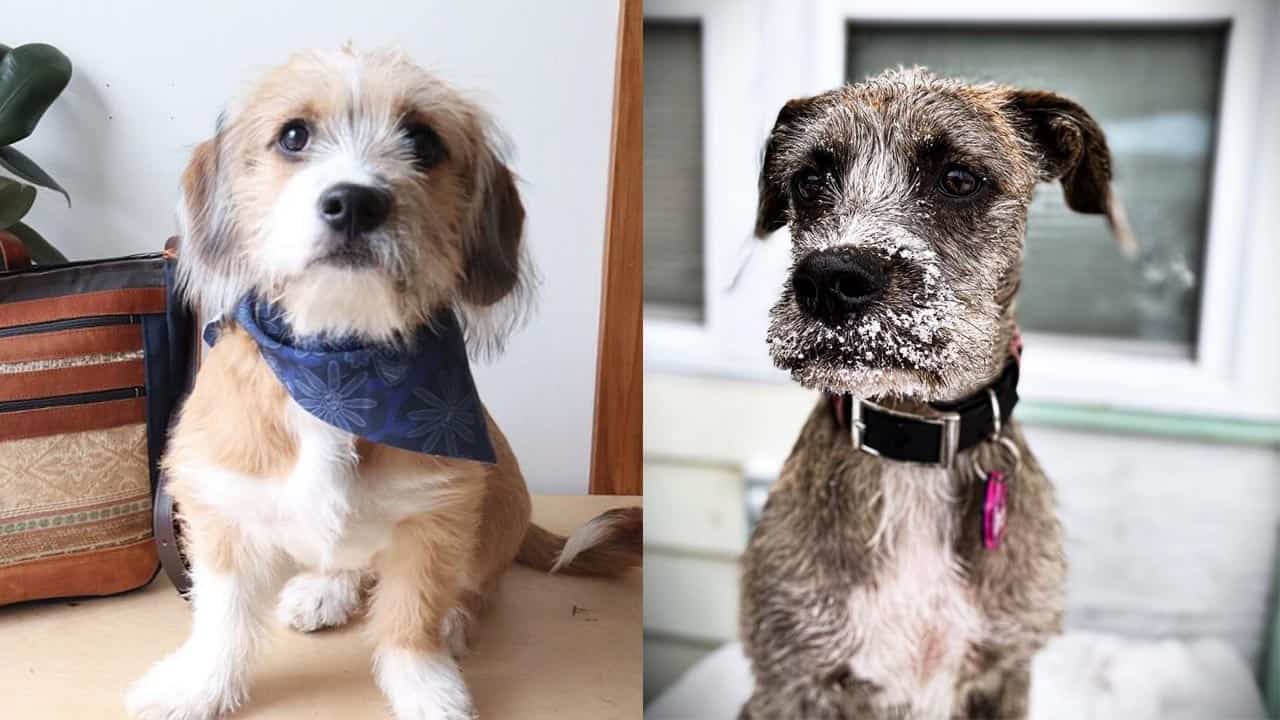Poodles, regardless of type, are remarkable breeds and are considered amazing buddies or companions. This canine breed exhibits remarkable loyalty, exceptional intelligence, and diverse emotions. Just like human beings, poodles can be depressed, excited, feel happy and sad, bored, overwhelmed, and even feel jealous.
Being cute and extremely elegant, most especially the show dog, many people don’t realize just how friendly and people-oriented this dog is. Poodles love human companionship. They also enjoy playing with other dogs and their master. They are truly remarkable pets and perfect canine family members.
Along with each Poodle having an exceptional personality or character, many owners find that their pet can have some weird or strange behaviors and habits. Let’s look at some of the weird things poodles do and whether you should be concerned or simply chalk it up to individuality.
Weird Sleep Behaviors
Poodle puppies are known to be one of the most delightful and energetic breeds of dogs. However, just like any other puppy, they require sufficient rest and sleep to grow and develop properly.
Generally, up to 8 months, puppies can sleep anywhere from 15 to 20 hours per day. This may seem like a lot, but it is perfectly normal for their age and stage of development.
Their sleeping needs will gradually decrease as they mature, but they will still require ample rest to maintain good health. It is important to note that while puppies sleep for extended periods, they tend to be extremely active while awake.
Much of their energy is used up while exploring their surroundings, playing, and learning. Therefore, providing them with ample playtime and activities is essential to keep them mentally engaged and physically stimulated.
As responsible dog owners, we should ensure that our puppies have a comfortable and safe sleeping environment and appropriate play activities to keep them healthy and happy.
Typically, adult Poodles tend to slumber approximately 13 hours after reaching their first year of age, with many adapting their sleep patterns to align with their owner’s routine by this milestone.
Taking intermittent naps is a customary practice amongst Poodles, and those left unaccompanied for extended periods exceeding 3 hours during the day are likely to experience an increased frequency of naps compared to their socially stimulated counterparts.
Senior Poodles exhibit a proclivity towards increased slumber and frequent napping as they age. The age at which a Toy Poodle attains seniority is ten years, while its Miniature Poodle counterpart reaches it at 8-9 years and the Standard Poodle at seven years of age.
It is imperative to respect the elder dog’s need for rest and avoid compelling them into strenuous play or exercise. While daily walks remain a crucial aspect of their overall well-being, granting seniors the liberty to take a break when necessary is essential.
Irresistible Urge to Gnaw on Anything Within Reach
As previously discussed, young canines are characterized by an innate urge to gnaw on any object within reach. This developmental phase plays a significant role in their education and understanding of the environment.
While a proprietor must safeguard the premises against any potential hazards, it is equally imperative to grant the young pup the freedom to investigate their surroundings indoors and outdoors. The onset of teething presents additional challenges and may necessitate further research in the teething segment.
Play from Daybreak to Nightfall
During this duration, which ranges from 8 weeks to approximately one year, it is common for your Poodle puppy to exhibit heightened energy. Poodle puppies are known to engage in playtime activities throughout the day, making it typical for them to explore every object they come across and ultimately exhaust their owners.
It is important to note that chewing behavior may also manifest before the onset of teething. As such, ensuring that the environment is puppy-proofed and that your Poodle is receiving adequate training to comply with commands is crucial. For further guidance on managing a hyperactive Poodle, consult our comprehensive resource.
Nipping
Failure to provide proper training and guidance to your Poodle regarding nipping behavior can lead to developing a detrimental habit. This can adversely affect your pet’s behavior, such as interacting appropriately with visitors and children during playtime.
Puppies instinctively engage in nipping behavior as it constitutes their initial form of play. As the owner, you are responsible for imparting the necessary knowledge to your Poodle regarding acceptable and unacceptable behavior.
This will prevent the development of nipping tendencies in your adult dog. For further information, we recommend referring to the temperament section.
Enthusiastic Greetings Turn Awry
The exuberance with which a Poodle leaps up to greet you stems from a place of genuine affection and enthusiasm.
These exuberant welcomes often reflect the inherent warmth and excitement that Poodles possess. However, what begins as an endearing display of affection can swiftly transform into a behavior that challenges both Poodle owners and those on the receiving end.
The heart of the matter lies in the Poodle’s genuine desire to connect and express joy. Their jumping behavior vividly demonstrates their boundless energy and eagerness to engage with the world around them. Unfortunately, this spirited display can pose challenges, transforming a warm welcome into a potentially frustrating interaction.
As a Poodle parent, it’s essential to balance embracing their exuberance and fostering desirable behaviors. This journey entails channeling their enthusiasm into more appropriate forms of greeting, ensuring that the genuine affection they exude is expressed in an enjoyable and respectful manner for everyone involved.
Growling
The manifestation of growling behavior in Poodles can occur in playful interactions, particularly with young puppies, or may indicate a misplaced perception of their hierarchical standing in the home, in which case aggression may ensue. It is imperative to address this behavior promptly to ensure expeditious and effective resolution.
Marking
Distinguishing between marking and housebreaking mishaps is crucial when analyzing the behavior of Poodles. It is not uncommon for Poodles to discharge urine within the confines of their living space to delineate their territory.
This conduct is often a result of potent canine instincts that are triggered by various factors. Thankfully, various techniques exist to prevent a Poodle from engaging in marking behavior, such as implementing effective hierarchical structures and responding appropriately to the situation.
Eating Feces
Regarded as coprophagia, this unsettling conduct is frequently observed among all breeds of Poodles. Canines may consume their excrement, that of their peers, or even feline fecal matter gleaned from the litter box.
Familiarize yourself with the underlying causes that may stimulate this behavior in puppies and adult dogs, and discover various means to curtail this behavior.
Clingy
Poodles may exhibit timidity and prefer the proximity of their owner over engaging with unfamiliar individuals or engaging in solitary play. Once this weird action is sustained in due course, it can be physically and emotionally tough for guardians and may negatively affect the dog’s health. This also hinders the capability of the Poodles for assurance as well as self-discovery.
Begging
Canine companions who have mastered the skill of begging can exhibit a persistent and unwavering demeanor. Yielding to this behavior can prove to be a challenge.
However, implementing the following techniques can effectively extinguish this conduct and result in a more pleasant and stress-free relationship for you and your furry companion. The measures outlined below can assist you in curtailing begging tendencies in Poodles.
Frequent Humping Behavior
This weird behavior of Poodles surpasses age boundaries. It also extends to Poodles, which have been neutered and spayed. This behavior usually raises owners’ eyebrows and prompts them to delve into its main culprit and equip them with insight on correcting this weird action.
The problem of why this breed of dog engages in these weird actions spans a spectrum of possible triggers. From expressions of excitement or playfulness to stress, anxiety, or a simple display of dominance, this behavior’s roots can be as varied as the Poodles’ personalities.
It’s essential to recognize that humping isn’t always a manifestation of sexual intent; it can stem from a complex interplay of emotional and instinctual factors.
From expressions of excitement or playfulness to stress, anxiety, or a simple display of dominance, this behavior’s roots can be as varied as the Poodles’ personalities. It is important to know that this behavior is not about sexual intent manifestation. It can be due to a complex interplay of instinctual and emotional factors.
Get Excited Easily
Although the predisposition towards excitation is more frequently observed in young canines, Poodles of all ages may easily exhibit this behavior. The nature of this reaction can be either positive or negative.
Separation Anxiety, a condition characterized by difficulty adjusting to solitary confinement, is a phenomenon that afflicts certain Poodles. Dogs experiencing this may become excessively elated upon their owner’s return and consequently lose control of their urinary function.
Given the impracticality of constant companionship with our beloved Poodles, perusing the section devoted to separation anxiety may be advisable.
